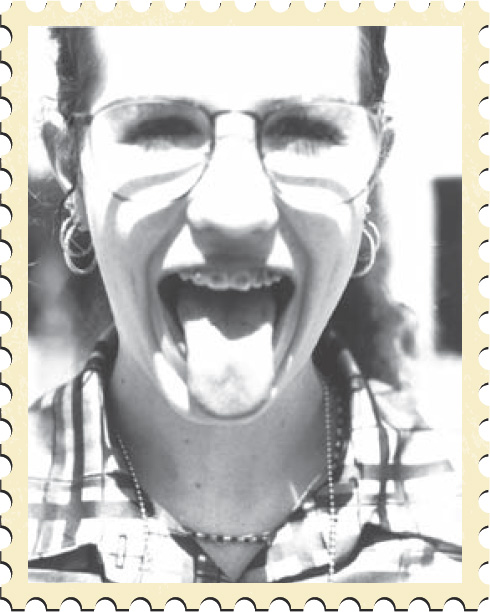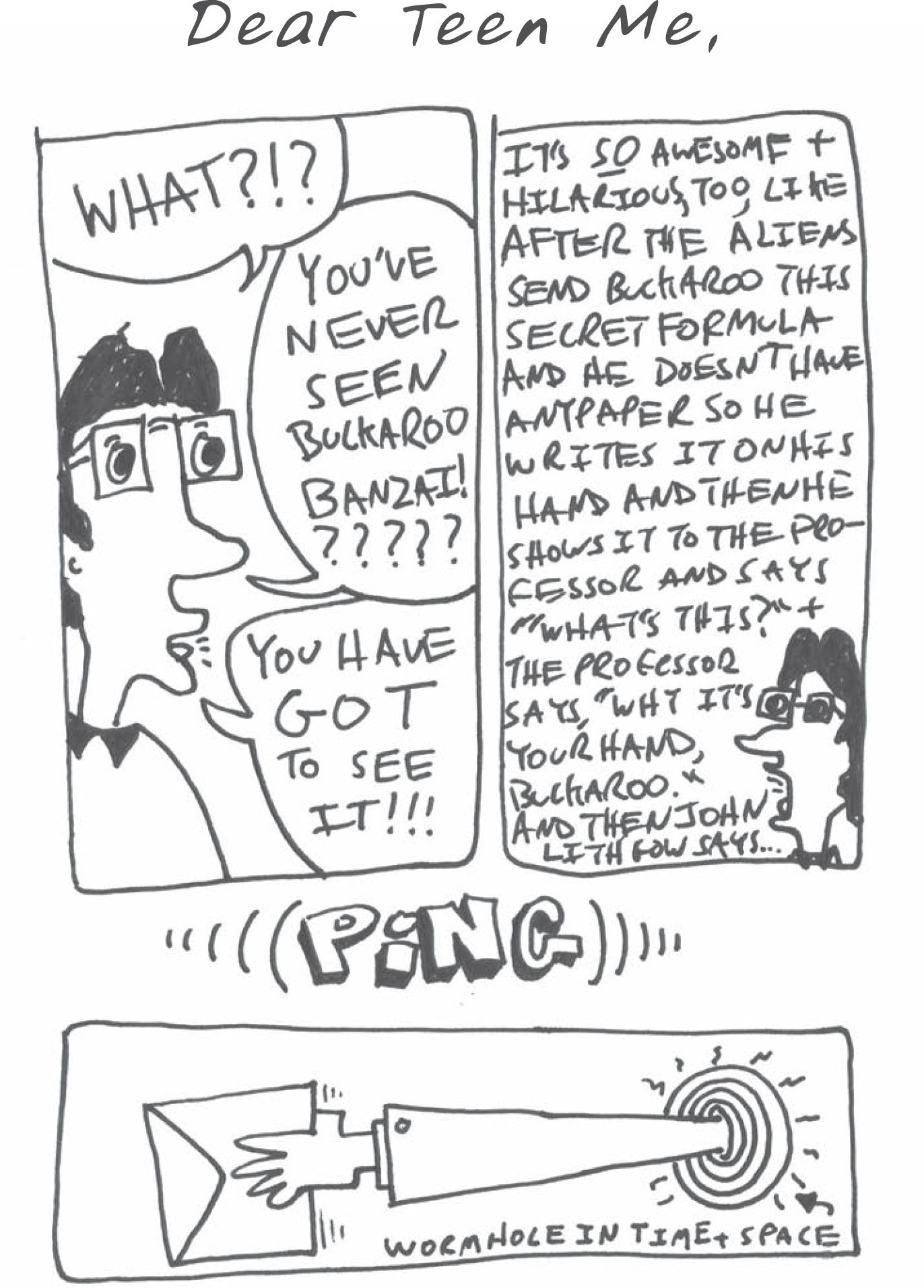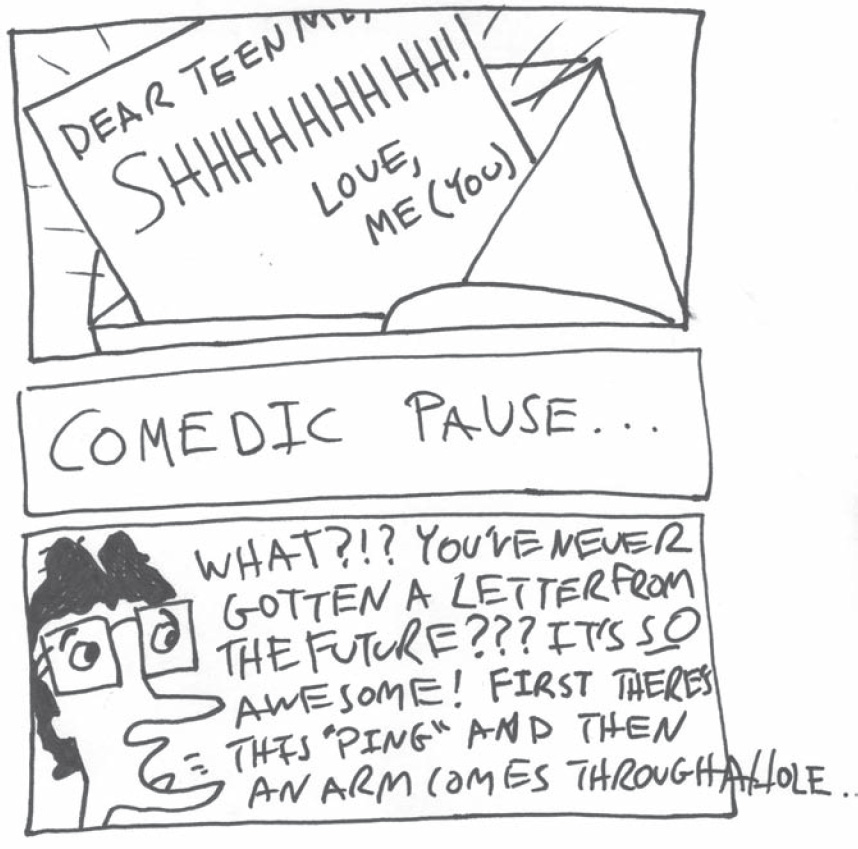Regine's Book (38 page)
Authors: Regine Stokke

In addition, you feel shattered after finding out that your boyfriend and best friend have started seeing each other behind your back. Yes, you’ve been crazy busy, but this is inexcusable. The betrayal makes you feel even more exhausted. Before crawling into bed, you thought about calling someone to confide in, but who would you call? Some people at school consider you “popular,” but they don’t know the real you. They only know the people-pleasing Jessica—the one who wishes everyone would like her.
You just want to hibernate until graduation. And while you don’t physically slow down, your spirit seems to withdraw as time progresses. Days blur together from so many simultaneous responsibilities—projects, quizzes, finals, additional applications, club meetings, volunteering opportunities, etc. Plus you have to take the ACT because you choked during the SAT. Despite your ongoing exhaustion, you manage to attend a few parties and football games, but you continue with the people-pleasing façade. You let your guard down with that cute guy from advisory, but then you try to distance yourself emotionally because dating someone now isn’t part of your plan.
Amazingly, the college acceptances start rolling in, and you receive quite a few scholarships. You’re elated—you’ve accomplished the seemingly
impossible! This amazing feeling is temporary, though, and the desperation doesn’t dissipate. If anything, you put more pressure on yourself as you prepare for college and your future. I wish that your adult self—me—could intervene and tell you that it’s not right to make success your god. Unfortunately, it takes a breakdown before you’ll be able to realize this.
You sign up for eighteen hours of classes during your first semester at college, plus join a couple of clubs and take on a part-time job. This is more than you can handle, and you’re near the point of flipping out. So when you get an opportunity to party in Mexico with some new friends, you’re all for a chance to escape. With each sip from a bottle of gin, you feel layers of your veneer cracking, and your anxiety lessening. Losing control feels good—until you completely lose it.
Let me just say that there’s nothing like a police-escorted trip to the hospital to make you rethink your priorities. You will recover from this worst hangover of your life, and your soul will start to heal too (albeit a bit more slowly than your black eye). While there are many things you can control, you need to learn to let go in more appropriate ways. Try losing yourself on long hikes, or while writing.
And by the way, that cute guy from advisory? You’ll marry him.


 Jessica Lee Anderson
Jessica Lee Anderson
is the author of
Trudy
(winner of the 2005 Milkweed Prize for Children’s Literature), B
order Crossing
(a 2009 Quick Picks Nomination), and
Calli
(a 2011 Reader’s Choice Nomination). She’s published two nonfiction readers, as well as fiction and nonfiction for a variety of magazines including
Highlights for Children
. Visit
JessicaLeeAnderson.com
for more information.



 Tom Angleberger
Tom Angleberger
eventually discovered that he was supposed to write down all that nerdy stuff instead of saying it out loud, and now he’s the author of
Horton Halfpott
(2011),
Fake Mustache
(2012), and the Origami Yoda series.

Sean Beaudoin
Dear Teen Me,
Is it possible that this arty self-portrait was ever really me? When you close your eyes, you can almost smell the incense. This shot was taken before digital cameras existed. Back then film was expensive, complicated, and difficult to process. Remember when you got into buying old cameras at the Salvation Army and then sending away to someplace in New Jersey for obsolete types of film? It’s hard to tell if that was an inspired hobby or just the product of sheer, crushing boredom. In any case, this particular shot that I’m looking at now was taken with a 1950s Polaroid camera. (You paid three dollars for it and then ruined forty dollars’ worth of film learning how to use it.) Apparently, there’s a fine line between nerd-rock cover art and self-indulgent pretentiousness.
First, you found some “really cool lighting” in which to linger. Then you practiced getting just the right facial expression: anguished, hip, tough, and worldly (read: non-virginal). The absurdly heavy camera sat atop the tripod that you asked for (and actually got) for Christmas. There was a thumb switch at the end of a long cord that released the shutter.
Click. Flash.
Genius.
You laid the exposures out on the linoleum floor like a hand of solitaire, and for some reason you decided that this one was the best. How do I know? Because now it’s the only one left. How many drawers and shoe boxes and apartment closets has it sat at the bottom of? How many moves and fires and storage-space purges did it survive? In retrospect, this shot may not be the artistic breakthrough it once seemed, but there’s no question it epitomizes your guiding internal mantra that year:
Things Are So Very Difficult, But I Guess I’ll Deign to Persevere
.
Also, it echoes that old Depression-era truism that “nothing truly good ever happens unless it happens under light spilled through a dirty venetian blind.”
Teen Me, all I can say is that I miss you dearly. I miss your white teeth. Your “go ahead and dare me to cut it off” ponytail. The red Yukon suit you wore all winter as an anti-fashion fashion statement. Not to mention the vampiric
longing in your expression—an expression that seems to say, at one and the same time: “I want to create!” and “I want to be famous!” and “Do I look cool from this angle?” and “Deep down I know I’m a fraud.”
You may not have had a lot of self-confidence back then, but you did at least believe—truly and honestly—that art was everywhere (at least potentially): in a sculpture made out of tires, in a poem written on a napkin, in a black-and-white photograph of a dead bird, in a song written in an hour, or in a collage of supermodel heads torn from fashion magazines and glued to the cover of your never-opened Algebra II textbook. It was a liberating and exhilarating feeling to recognize that (lowercase) art was around every corner, just waiting to be made or discovered. Back then, everything was a tool, including (and especially) yourself: cameras, clay, pens, glue, crayons, your voice, or a guitar. The idea of
potential
practically swirled through the air—a cluster of insistent notes that made up the backbeat of almost everything connected with you at seventeen.